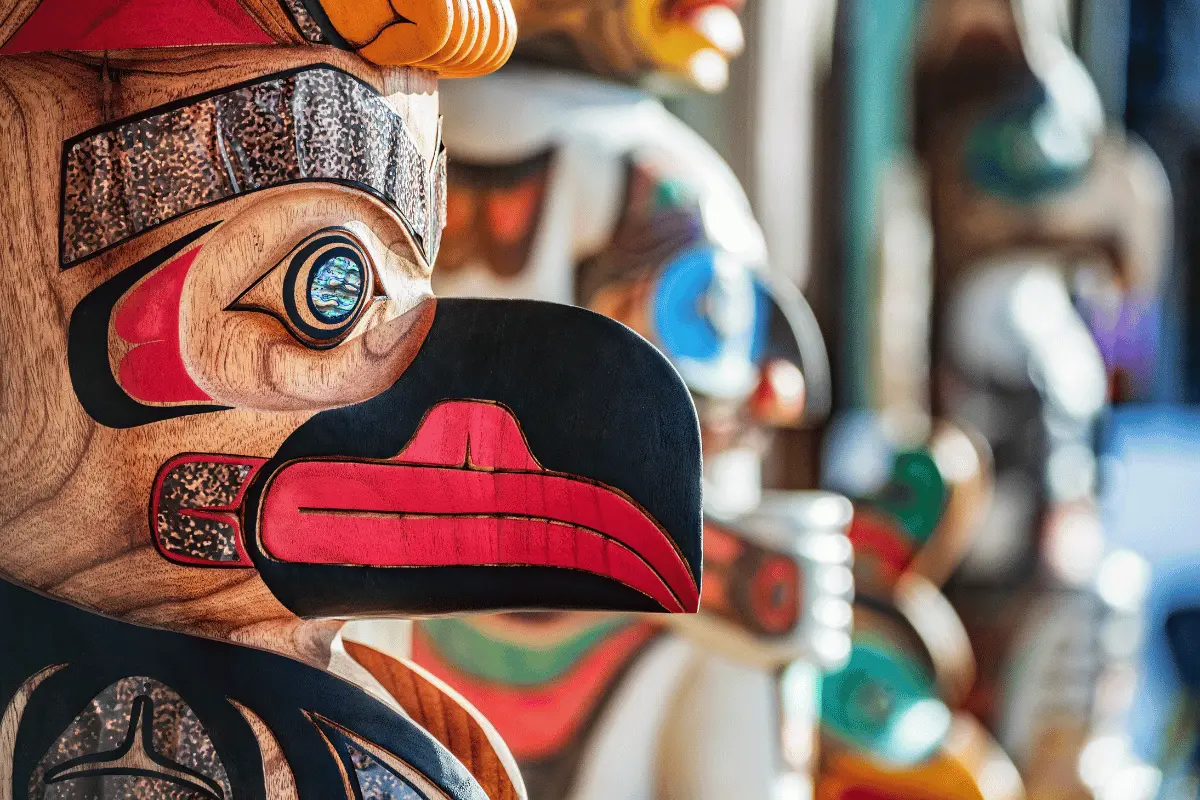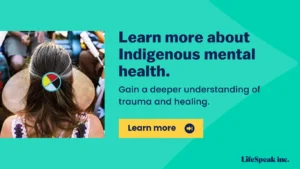How to Decolonize Your Mind – and Practices to Support Indigenous Wellness
How to Decolonize Your Mind – and Practices to Support Indigenous Wellness
In honor of National Indigenous History Month, we are featuring the work of LifeSpeak Inc. expert and psychologist Dr. Arlene Laliberté, an Anishenabekwe (Algonquin woman) from Témiscamingue. Dr. Laliberté explores the power of learning how to decolonize one’s mind, which can have a profound impact on our personal lives, communities, and workplaces.
By sharing her perspective, Dr. Laiberté shows how the process goes beyond personal wellbeing, extending into reconciliation and building respectful relationships with Indigenous communities.
Decolonization is a critical, anti-oppressive, anti-racist framework for social justice inequity.
Decolonizing means realizing that our mentalities, knowledge, values, and ways of doing things are rooted in the worldview of the colonizer. In health for example, it is to get rid of the perception that western science is truth, while the ways of healing of Indigenous people is seen as superstition.
In this article:
I was invited to a hospital committee where they were discussing better ways to service psychiatric patients and people who were going for rehabilitation:
They asked me:
– “How can we give better services to Indigenous people of the area?”
I told them, having an elder on staff, offering traditional ways of healing like sweat lodges and different types of ceremony could be very helpful. They just refused straight out because they said:
– “This is a hospital, and we are committed to empirical-based knowledge.”
So, I asked them:
“Do you have a chapel in the hospital?”
– “Well, of course.”
I asked them why, and they said:
– “Because having faith and believing in something, praying, is important and it could actually help people in their healing.”
So, I said:
– “Okay, you let me get this straight, and with all due respect, you believe that a man was born of a virgin, committed these magical acts throughout his life, died, and came back to life, whereas our ways of doing are not empirical and are superstitious?”
Well, I was not invited back to that committee.
“Decolonizing means realizing that our mentalities, knowledge, values, and ways of doing things are rooted in the worldview of the colonizer.”
Recognizing Indigenous worldviews
Decolonizing is about recognizing Indigenous worldviews. For the Anishinaabe, the relational nature of Indigenous epistemology recognizes as inseparable the physical, mental, emotional, and spiritual aspects of individuals with all life forms, the Earth itself, and the cosmos. This holistic view in which the whole is more than the sum of the parts, and these parts are indissociable, the way we see, explain and experience our realities as fluid, non-linear, and relational. Many Indigenous ways of knowing accept both the physical and non-physical realms as realities.
It’s not uncommon in my practice for clients to tell me that they see, hear, or feel the presence of their deceased loved ones. I certainly investigate the presence of a disorder a little bit, but I know that it can be part of their grieving process, and I welcome them within that reality. The fact that I understand this dimension, that they don’t need to explain or justify, that it just seems self-evident, helps them to move forward in their healing.
Similarly, for the Anishinaabe and other Indigenous nations, health is more than just the absence of disease. It’s a positive, holistic concept that emphasizes cultural, community, family, and personal resources as well as spiritual, mental, and physical capacities. It is a community-wide vision in which each individual can reach their full potential as a human being and bring about the total health and wellbeing of their community. This also includes the cyclical concept of life, death, life.
Thus, knowing the importance of the interrelationships or impacts of historical traumas helps me to better guide my clients to solutions that make sense to them. It would be different if I had a different clientele.
“Working or interacting from a decolonization and reconciliation perspective requires recognizing the destructive effects of oppression experienced by Indigenous people, the way in which Indigenous groups represent their environment, and some of the fundamental values that are essential to our healing.”
How to decolonize your mind: working & interacting from a reconciliation perspective
Better relationships with Indigenous people also imply reconciliation. Reconciliation is “an ongoing process of building and maintaining respectful relationships. An essential element of this process is repairing the bond of trust through apologies, individual and collective reparations, and actions that demonstrate real societal change”. (Truth and Reconciliation Commission of Canada)
Working or interacting from a decolonization and reconciliation perspective requires recognizing the destructive effects of oppression experienced by Indigenous people, the way in which Indigenous groups represent their environment, and some of the fundamental values that are essential to our healing.
One’s own position of power in the helping dynamic is also an important thing to recognize. We also have to look at the importance of undertaking a personal process of decolonization. Working from a decolonization and reconciliation perspective requires personal reflection, doing one’s own research, and, above all, trusting the people who come to us for help. As a psychologist, I believe in the strengths and the capacities of my clients while welcoming them in their suffering.
It’s certain that one person will not change the world, but working from a perspective of decolonization and reconciliation can change one person’s world, and that alone is worth it.
For a deeper understanding of the factors surrounding Indigenous mental health, read Trauma & Healing: How Modern Day Brain Science Meets Traditional Indigenous Teachings.
Looking to create awareness around Indigenous wellbeing? LifeSpeak Inc’s Mental Health and Resilience includes resources to support Indigenous mental, physical, and emotional health at work and beyond through on-demand, expert resources, tools, and microlearnings.
To learn more about our full suite of solutions, request a demo today.
About the Author, Dr. Arlene Laliberté, PhD, Psychologist
Arlene Laliberté, PhD, is an Anishenabekwe (Algonquin woman) from Témiscamingue. After obtaining her doctorate in psychology from UQAM (Université du Québec à Montréal), she completed a post-doctoral fellowship in Australian Aboriginal communities. Arlene is a member of the Ordre des psychologues du Québec (Order of Psychologists of Quebec).

